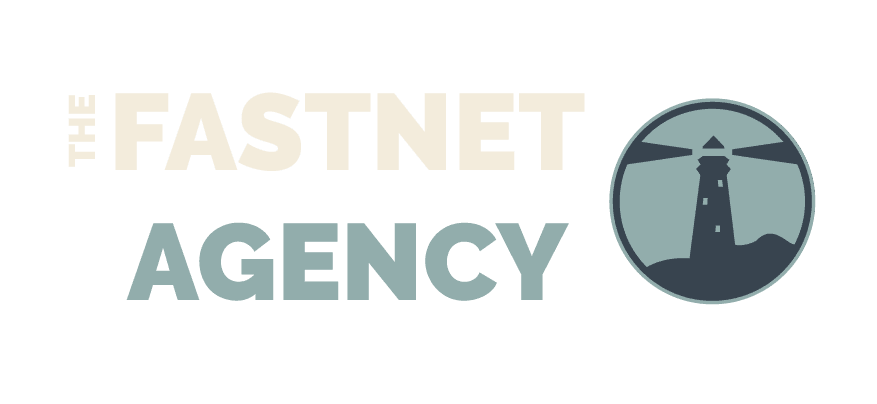A range of marketing terminology gets wafted around on a daily basis, but sometimes it can be hard to keep track of what EXACTLY these terms mean, and how they can benefit your business.
Here at Fastnet we very much believe in results, not jargon, so we thought we’d provide you with a comprehensive lowdown of digital marketing, the various terms associated with it, and anything else we thought you might find useful (you can thank us later).
What Does Digital Marketing Actually Mean?
So let’s start with the basics. Well the answer to this question is pretty simple – digital marketing is any form of marketing that targets potential customers online. Businesses can leverage digital platforms such as social media, search engines, email marketing and paid advertising to drive traffic to their website and generate leads and sales.
Digital Marketing is generally referred to in two ways
- ‘organic’, which is non-paid online content
- ‘paid’ which is, well, paid to appear in a certain location or in front of a certain audience (in other words, a form of advertising).
A comprehensive digital marketing strategy will often use a mixture of both paid and organic methods.
Why would you engage in digital marketing?
If you want your website to work for your business, then you need to invest time and/or money in digital marketing of some description.
If you think of your website like a traditional walk-in shop, then digital marketing takes that shop from the Sahara desert and places it in the middle of the high street.
The amount of effort you put into your digital marketing will influence which high streets your shop appears on – the first step is to be found in your local highstreet. A bit more effort and you may appear further afield. Go all out on your digital marketing and your shop might even appear on Oxford Street.
What is the main difference between a local village highstreet and Oxford Street? Traffic and footfall. The ultimate goal of digital marketing is to drive more traffic to your website, and you’ll do this by increasing the number of places in which your website can be found.
What are Keywords?
Keywords are the terms for which your website is found. You may offer a range of products or services, in which case ideally you’d want to be found for all of the terms associated with them. Depending on how competitive your marketplace is, it may take some time and effort to appear for all of your target keywords.
Google normally displays around 8 organic results on its first page, and most people will only click through the top two or three, so it’s important to get to the very top of Google’s rankings wherever you can. In addition, it will also show local business results for those keywords, shown alongside a Google map of the local area. These results will therefore vary by location. It’s easier to rank for keywords locally than nationally (or internationally).
Because there’s a lot of work involved in ranking for your keywords, it’s important to form a strategy. You can use free tools like Ubersuggest to find out how popular and competitive keywords are, so you can prioritise those keywords that will give you the best results.
What other terms are there for digital marketing?
Search Engine Optimisation (SEO)
This is the process of optimising your website so it’s found for your keywords.
‘On page SEO’ is the practice of using strategically placed keywords in your copy so that you’re found for those terms.
‘Off page SEO’ involves building links to your site from other sources, to give your site credibility. These sources might include industry blogs or social media.
‘Technical SEO’ focuses on the code in the backend of your website, ensuring that this is structured and optimised to give the best results.
Content Marketing
This involves using online content such as blog posts, e-books, white papers and video to increase brand awareness and grow your website traffic.
Social Media Marketing
This is the practice of leveraging social media platforms, such as Facebook, Instagram and LinkedIn, to promote your brand and drive traffic to your website.
Pay Per Click (PPC)
This is where you pay to drive traffic to your site through adverts or targeted content. You can find PPC advertising on a range of channels, including Google, Facebook, Twitter, Instagram, LinkedIn and YouTube.
There are a range of options when it comes to PPC, and it can be easy to lose money rather than make it if you don’t know what you’re doing. If you need some help and advice, speak to a member of our team today.
Email Marketing
This is where you send targeted emails to your email list in order to educate or to drive sales for a product or service. GDPR legislation means that you need to ensure that recipients have agreed to receive your emails, and also that they are given the option to remove themselves from your list if they want to.
Email marketing can take the form of email newsletters, transactional emails, promotions, follow up emails, abandoned cart emails and so on. It’s a great way of keeping you front-of-mind with potential customers!
Inbound Marketing
Inbound marketing is the method of producing useful, informative content to educate your customer and provide answers to their problems. The idea is that new customers are encouraged to come to you, rather than you reaching out to them through paid advertising or cold calling.
Inbound marketing is one of the cornerstones for our own approach to marketing – both for our clients and ourselves.
In fact this article is a good example of inbound marketing. You may have come across this article because you want to find out more about digital marketing. If we impress you with our knowledge, you may choose to contact us about our services. If not then at least we’ve been helpful, and that gives you a positive impression of our company and the quality of our service.
In addition, this article is naturally packed full of our target keywords, such as digital marketing, which helps our website to rank higher for these terms. It’s a win-win approach to marketing.
What can I do to help my own digital marketing?
One of the best ways to improve your online presence is to regularly post content which utilises your keywords on both your website and social channels.
The trick with this is to be consistent. Draw up a plan of when you intend to post content and stick to it. Use your target keywords in the title of the page and the first paragraph, but remember that your article needs to read well to humans as well as search engines, so don’t overdo it.
If you’d like some free advice about how to improve your digital marketing then click here to book a completely free, no obligation Discovery Call with a member of our team.



